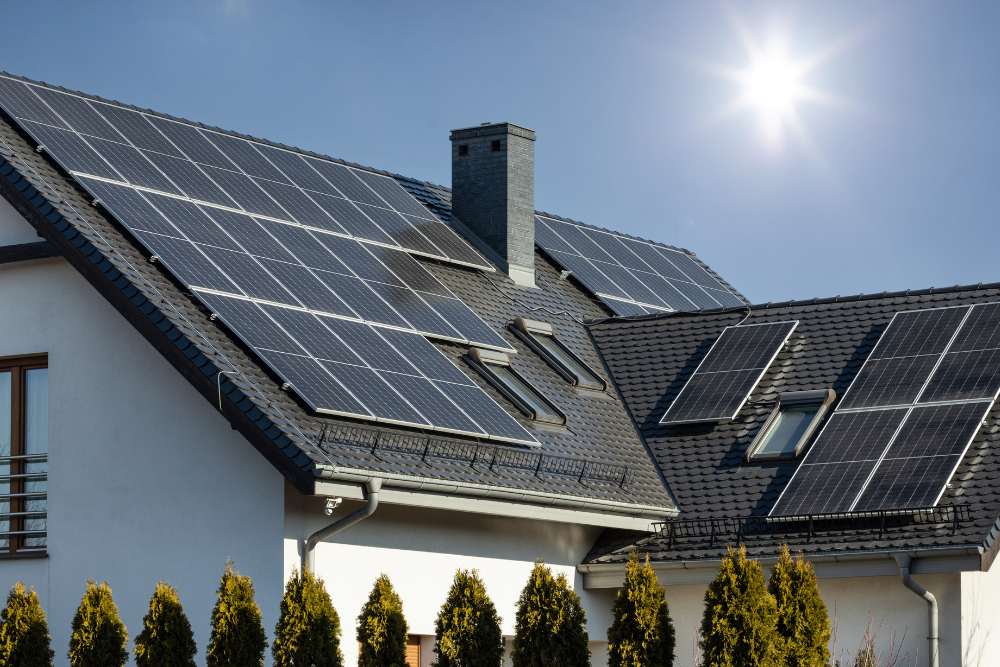In recent years, solar power has become increasingly popular among homeowners and businesses as a clean and sustainable energy source. Many people end up making the switch to solar power due to its wide range of benefits, which include reduced carbon emissions and long-term cost savings. However, one concern that many homeowners and businesses have about switching to solar power is the high cost of solar panel installations.
If you live in Arkansas and have been considering switching to solar energy, you’ll be happy to know that options are available to make solar energy implementation more affordable for you. In this article, we’ll cover how Arkansas is addressing the concerns revolving around solar panel accessibility by implementing state-wide programs and incentives.
Solar Power Incentives and Policies in Arkansas
Arkansas has a few incentives and policies in place to encourage the use of solar power. One of these policies is net metering, which is a way for people with solar panels to give extra electricity back to the power company and get credits for it in return. These credits can then be used to reduce their future electricity bills.
In Arkansas, net metering is used as a way to balance the electricity you generate and use. If you produce more electricity than you need and send it back to the power company, they subtract that extra electricity from what they originally gave you. If you send back more electricity than you use, they don’t charge you for any electricity that month. Instead, they keep track of the extra electricity that you sent back and offer you credits for it, which are then applied to your next bill.
Investing in solar panels can also have tax incentives, which may encourage more people to start using solar energy. For example, the Federal Investment Tax Credit allows individuals and businesses to deduct a percentage of their solar installation costs from their federal taxes. The ITC currently provides a 30% tax credit for residential and commercial solar installations). While Arkansas residents are eligible for the ITC, there aren’t currently any state-specific tax incentives for installing solar panels.
If you’ve researched solar energy installation in the past, you may have also come across the term Solar Renewable Energy Credits (or SRECs). SREC certificates represent the environmental benefits of generating solar power. Certificate holders can sell or trade them to local electric companies. While SRECs are a great incentive for switching to solar power, there are unfortunately no SRECs in Arkansas at this time.
Arkansas’ Solar Energy Access Programs
To further promote the adoption of solar power, various programs aimed at increasing solar energy accessibility have been established in recent years. These initiatives include Solarize campaigns, which are community-based programs that encourage people to switch to solar energy for their homes or businesses.
The goal of these campaigns is to make solar power more accessible by leveraging the buying power of an entire community, and they work by negotiating discounted prices for solar panels and installation services from local solar companies. By working together, campaign participants can then take advantage of bulk purchasing discounts which makes solar energy more affordable for everyone involved.
Arkansas also offers solar energy loans and financing options to assist homeowners and businesses in funding the installation of their solar panels. Low-interest loans are available specifically for solar energy projects, which in turn makes it easier for people to finance their panel installation if they’ve been considering switching to solar energy. Additionally, state and local organizations also provide financing programs to homeowners and businesses, such as Property Assessed Clean Energy (PACE).
Solar Power Rebates and Grants in Arkansas
The existing solar rebates in Arkansas are limited to Federal rebates, which will remain available until the end of 2032. This is important to keep in mind if you are currently exploring solar options in Arkansas and determining whether it is the right time to make an investment. There are also grant programs available to support larger-scale projects, such as theRural Energy for America Program grant (or REAP grant). Through this program, agricultural producers and rural small businesses can access guaranteed loan financing and grant funding to implement renewable energy systems.
Additional Resources and Support for Solar Power
Arkansas provides comprehensive support to assist homeowners and businesses in their switch to solar power, and this includes everything from solar energy assessment to consultation services. Additionally, there are several organizations that offer free or low-cost energy audits to evaluate the energy needs and potential savings of a property.
Professionals in the solar energy field who are located in Arkansas can also provide guidance on how to properly size a solar panel system to ensure optimal energy production and cost effectiveness.
For those looking to learn more about solar energy before committing, there are several organizations in Arkansas that offer materials to educate residents and businesses about the benefits of solar power, such as Arkansas Advanced Energy Association (AAEA) and Arkansas Renewable Energy Association (AREA).
Collaborative initiatives in Arkansas work to bring together multiple stakeholders such as government agencies, utilities, and advocacy groups to further help in driving the adoption of solar energy. Through these initiatives, Arkansas is creating a supportive environment for the growth of solar power.
Key Takeaways
Arkansas is taking significant steps when it comes to making solar power installation more affordable and accessible to its residents and businesses. Different incentives such as net metering, grant programs, and educational resources encourage the adoption of solar energy while helping to reduce the upfront costs of installations.
If you’ve been considering solar power for your home or business, Arkansas offers a wide range of support to help make the transition smooth for you. By exploring these different opportunities, you can help contribute to a cleaner and more sustainable future all while enjoying the long-term cost savings of solar energy.


